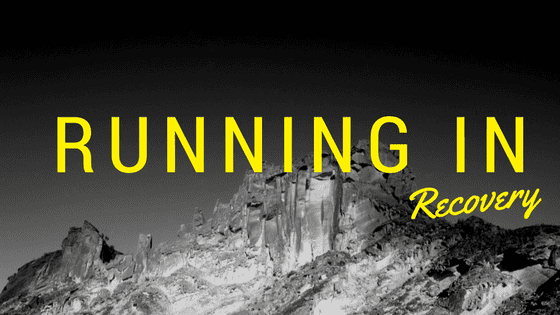Four years ago today I ran 26.2 miles in three hours, five minutes, and 42 seconds. It was and still is the shortest length of time it has taken me to complete that distance. I am extraordinarily proud of that personal record, but I feel as though it should have several asterisks after it, because the number doesn’t even begin to tell the whole story.
I have not run a strong marathon since.
One month and two weeks ago today, at 36 days sober, I completed a training run in preparation for another marathon. My goals for this race, while realistic, were optimistic. I hoped to get to the starting line healthy and injury-free. I hoped to run a strong, confident, smart race. I hoped to restore a little bit of confidence that maybe I can continue to improve at this sport. I hoped to qualify for Boston, something I haven’t done in nearly two years, despite easily qualifying in my first-ever marathon back in 2007.
I finished the aforementioned run, 16 miles at about 8:00 pace, around 7:45pm that evening.
Fifteen hours later, I was called to a conference room and informed that, after ten years of better-than-average evaluations, I was no longer gainfully employed. “Your position has been eliminated,” they said without emotion. Almost immediately, the sinister voice was awakened. “You don’t have to get up for work tomorrow,” it hissed.
Twenty-four hours later, I was drunk out of my mind and had completely forgotten about not only running, but everything that matters in this world, and everyone who cares about me.
Forty-eight hours later, I was still drinking.
One week later, I was drinking literally around the clock and wanted only to be unconscious. I’d wake up sick and shaking at 5:00 am, reach for the bottle next to my bed, drink what was left of it, and (if I was lucky) return to a brief and merciful state of semi-consciousness, where I could forget the hell that my life had become. Several hours later, when the stores opened, the cycle started over. I stopped caring if anyone saw me. I stopped trying to hide what I was doing. I went to bars and I went to liquor stores. I drank. I remember some of it. There was a kind bartender who held onto my wallet after I dropped it before stumbling home. A lunch date with a good friend during which I tried unsuccessfully to string together sentences, failing miserably, while spilling food all over myself. (He later admitted that he was “shocked” at my appearance.) There was a woman who caught my arm as I fell backwards, asking gently where I lived and if she could help me. I couldn’t tell her; I knew, but I couldn’t use words. I slurred helplessly and tried to run away, falling over and over again before finally finding my front door, and eventually, my bed.
(I’m going to stop here and state for the record that I live in a city known for its high-crime rate, a city about which not one buttwo award-winning TV shows have been created documenting such crime, and yet no one tried to hurt me or take advantage of me in this horrifying state. I experienced nothing but kindness.)
Two weeks, three days, and approximately one hour after that last training run for the marathon I never started, I took my last swallow of alcohol, and the following day I did the unthinkable: I checked myself into rehab.
I completed inpatient treatment on June 8, 2016. That same afternoon I ran again in the sunshine for the first time, and I felt something different, something indescribable.
In four days I will celebrate one month sober, again.
This is a different kind of marathon. There is no finish line for this one, no stopwatch, no competition, no medal.
But it’s the most important race I will ever run.




I am volunteering at a marathon this morning. After that I am going to run 10 K
Day 2 without a drink